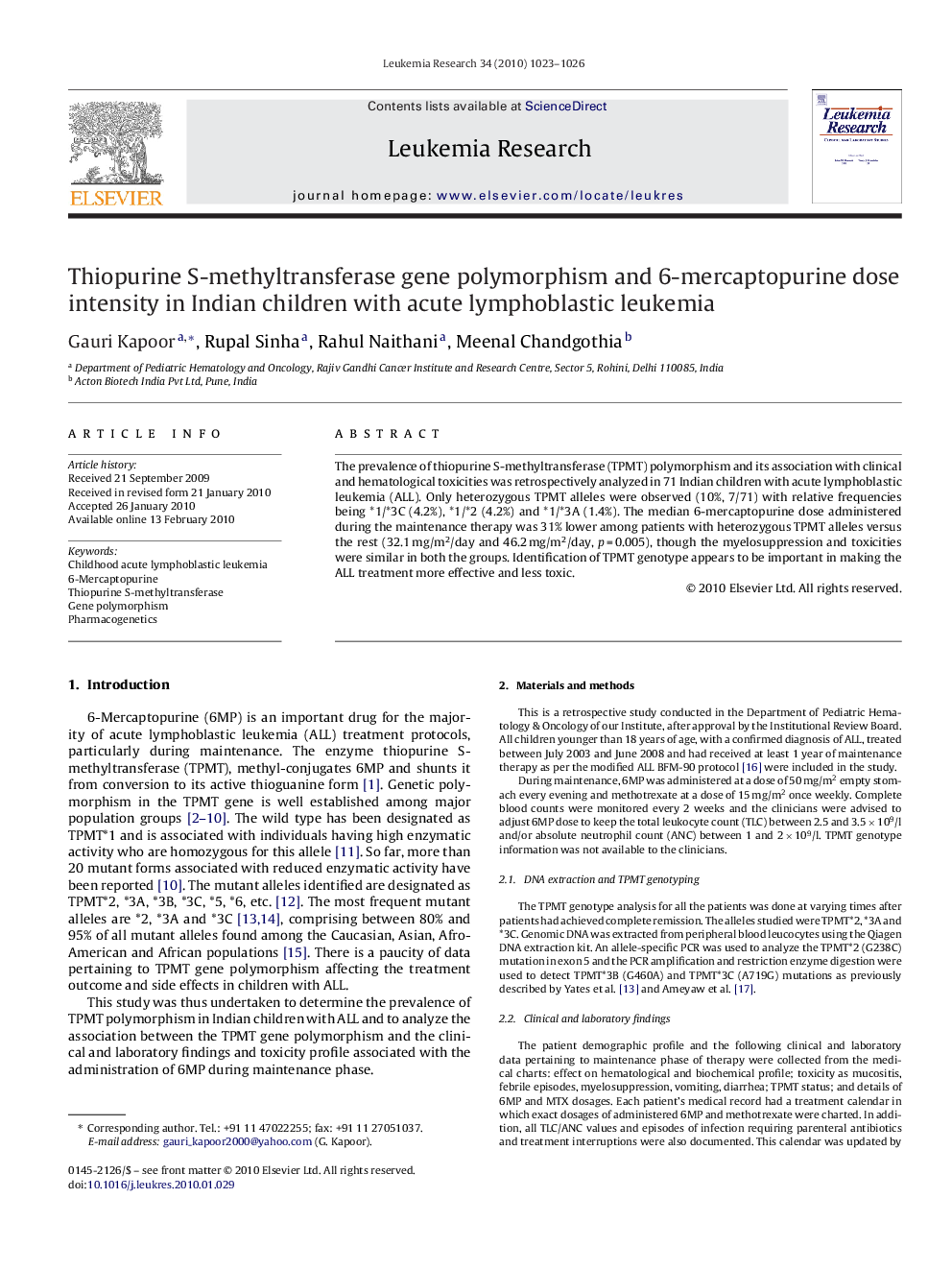| Article ID | Journal | Published Year | Pages | File Type |
|---|---|---|---|---|
| 2138541 | Leukemia Research | 2010 | 4 Pages |
Abstract
The prevalence of thiopurine S-methyltransferase (TPMT) polymorphism and its association with clinical and hematological toxicities was retrospectively analyzed in 71 Indian children with acute lymphoblastic leukemia (ALL). Only heterozygous TPMT alleles were observed (10%, 7/71) with relative frequencies being *1/*3C (4.2%), *1/*2 (4.2%) and *1/*3A (1.4%). The median 6-mercaptopurine dose administered during the maintenance therapy was 31% lower among patients with heterozygous TPMT alleles versus the rest (32.1 mg/m2/day and 46.2 mg/m2/day, p = 0.005), though the myelosuppression and toxicities were similar in both the groups. Identification of TPMT genotype appears to be important in making the ALL treatment more effective and less toxic.
Keywords
Related Topics
Life Sciences
Biochemistry, Genetics and Molecular Biology
Cancer Research
Authors
Gauri Kapoor, Rupal Sinha, Rahul Naithani, Meenal Chandgothia,
